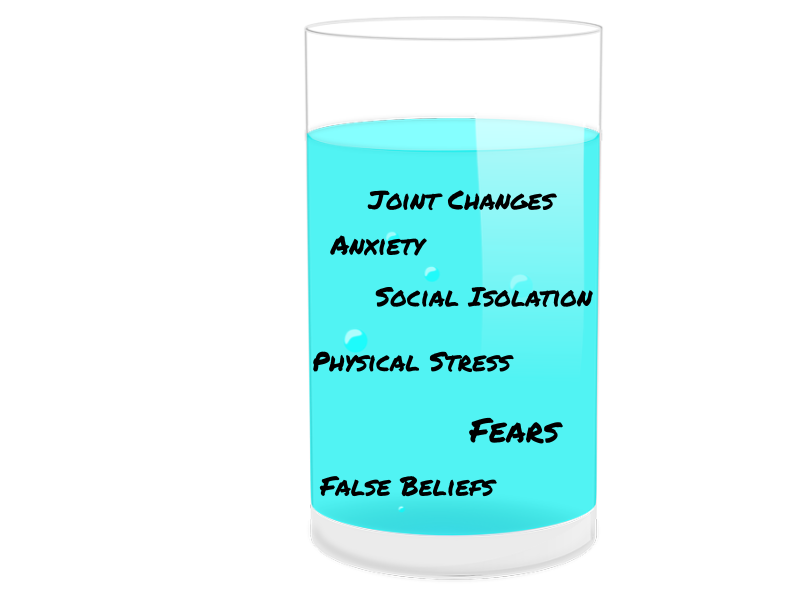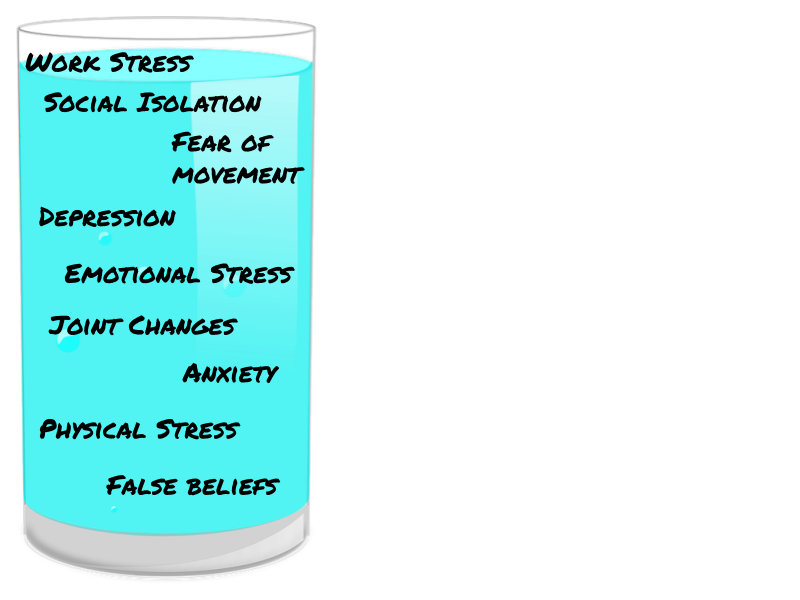June 9, 2021
Part One: What is the cup?
When treating a patient, it is imperative that they are able to see how different aspects of their lives (mental, physical, emotional, etc.) can have implications on their wellbeing. A simple analogy that helps patients understand the multifactorial nature of pain is the cup analogy. Essentially what this analogy gets at is that all patients have a capacity or tolerance to a certain magnitude of stressors, load, and stimuli, which is known as the cup. The items in this cup can include a plethora of ideas such as lack of psychosocial support, physical stress, anxiety, along with many other things that can be considered “stressful”. When there is an excess of stressors/load/stimuli, the cup overflows and an alarm is triggered causing the body to respond with pain.


So, what is there to do? How can we manage our cup? How can physical therapy help?
- Address/lessen some of the stressors, loads, stimuli in the cup.
- Build a bigger cup.
Part Two: The Patient and the Cup
Address/lessen some of the stressors, loads, stimuli in the cup
A big way that physical therapy can help address this area is through load management and activity modification. It can be very helpful and insightful for a patient to sit down with a physical therapist, discuss their case, identify triggers, and adjust life variables to help lessen the amount of physical stress that may be causing the patient’s impairments. Physical therapists during this time can also identify movements and address beliefs that may be provocative and exacerbating the patient’s symptoms. In this light, activities can be modified in the short-term to provide relief, with the long-term goal of providing patient’s the ability to have many different options to move.
Check back for part three where we discuss how to build a bigger cup. If you have questions about how this information may pertain to your currect situation, call Portland Physical Therapy at 207-828-4455 or e-mail at info@pptmaine.com.
Author: Brandon Drinan, PT, DPT, CSCS.


